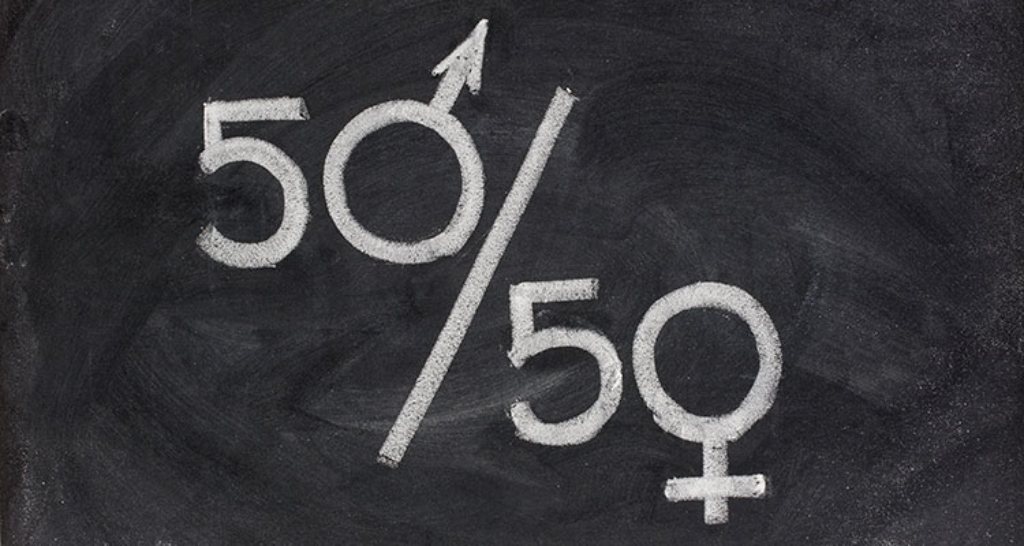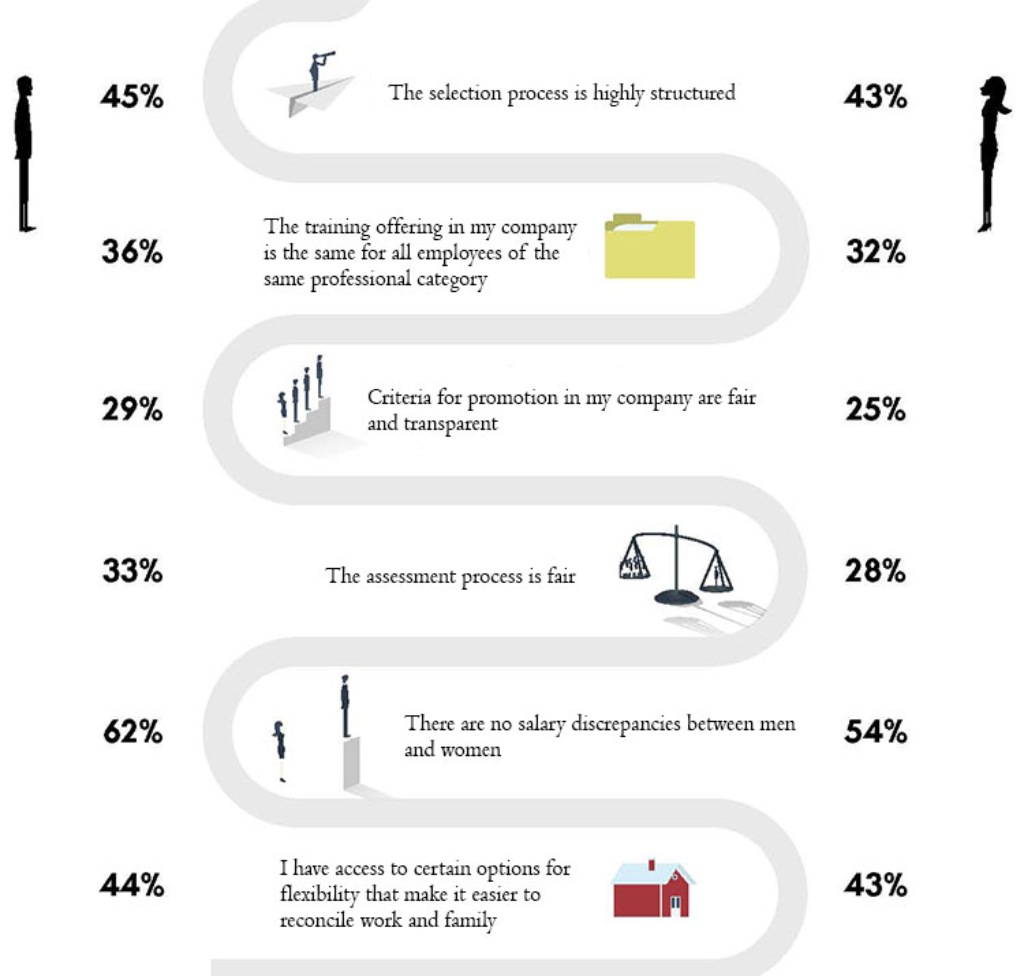
IESE Insight
Gender equality remains elusive in Spain
Almost nine in 10 Spaniards say they work in environments that hinder equal access to opportunities, and 42 percent believe that pay discrimination based on gender is an issue, according to a report led by Mireia Las Heras.
Eradicating gender inequality in the workplace could translate into a 26 percent increase in global GDP by the year 2025, according to the McKinsey Global Institute.
The extent of the problem becomes clearer in context: 87 percent of men and 86 percent of women in Spain claim to work in environments which systematically impede equal opportunities. Furthermore, 42 percent of active professionals believe that pay discrimination on gender grounds is an issue.
These are some of the findings presented in the 2017 report on professional development and equal opportunities among men and women in Spain, by IESE's International Center for Work and Family, in collaboration with Infoempleo and sponsored by Gas Natural Fenosa.
The report verifies that there is a pay gap in Spain — which is wider for older working generations and shrinks to under 6 percent for those under 25 — and stresses the problem of hierarchical and departmental segregation.
Inclusive Policies
Hiring, training, promotion, evaluations, pay and work-family conciliation are areas where policy and practice can really help create equal-opportunity workplaces, and where vast improvements can be made:
- A majority of those surveyed felt that the hiring process in their company was not adequately structured (55 percent of men and 57 percent or women). This can lead to discretionary decision-making, inequalities and sub-optimal results.
- Only a third (36 percent of men and 32 percent of women) believed that access to training in their company was based on fair criteria.
- Almost three quarters (75 percent of women and 71 percent of men) believed that their company did not have fair and transparent promotion policies. Put another way, the vast majority felt that men were promoted more readily than women.
- Less than a third (33 percent of men and 28 percent of women) agreed that their company's evaluation procedures were fair.
- More than a third of men (38 percent) and almost half of women (46 percent) accepted that gender pay gaps were still a problem.
- Lastly, the data showed that work-family conciliation policies were not fully implemented in businesses, given less than half of men and women said they had access to such measures.

Leadership Failures
The report reveals that most supervisors are seen to fail on inclusive leadership. This failure applies to both male and female supervisors, though the results indicate that men provide more instrumental help to their employees, whereas women offer more emotional support.
Against this backdrop of failure, businesses must use their resources to train their leaders and help them change their attitudes. Non-inclusive leadership has highly negative consequences, including a drop in staff commitment and more work-induced domestic conflicts.
The report also points out that in Spain, unfortunately, the persistent image of the ideal employee is someone at the beck and call of the company, especially when it comes to men. Conversely, the stereotype of the ideal leader is still a dominant and aggressive figure, when what business and society need are holistic leaders who encourage efficiency, personal and collective development, and unity.
Benefits of Equality
Gender equality brings many positive outcomes along with it: a greater level of commitment to the company mission, higher levels of work satisfaction, reduced conflict between work and family, greater satisfaction with the different aspects of life, better quality sleep, and fewer requests for leaves of absence due to unmanageable stress. This last point is especially relevant among women, who still take more responsibility for household tasks and the care of dependent family members in Spain.
In this context, the report stresses that nobody has the right to offload their responsibility onto others, and that "we should all work synergistically to create an equal opportunities environment which fosters not only business competitiveness, but family development and progress in the country as a whole."
Methodology, Very Briefly
The report looks at the professional, family and personal environments of those studied and classifies these as satisfactory (S), hostile (H) or exclusionary (E), based on three variables applied to each one — usual type of policies and practices; decision-making and leadership styles; and culture and values in decision-making.
The results are based on more than 2,000 individual responses to a quantitative survey.
